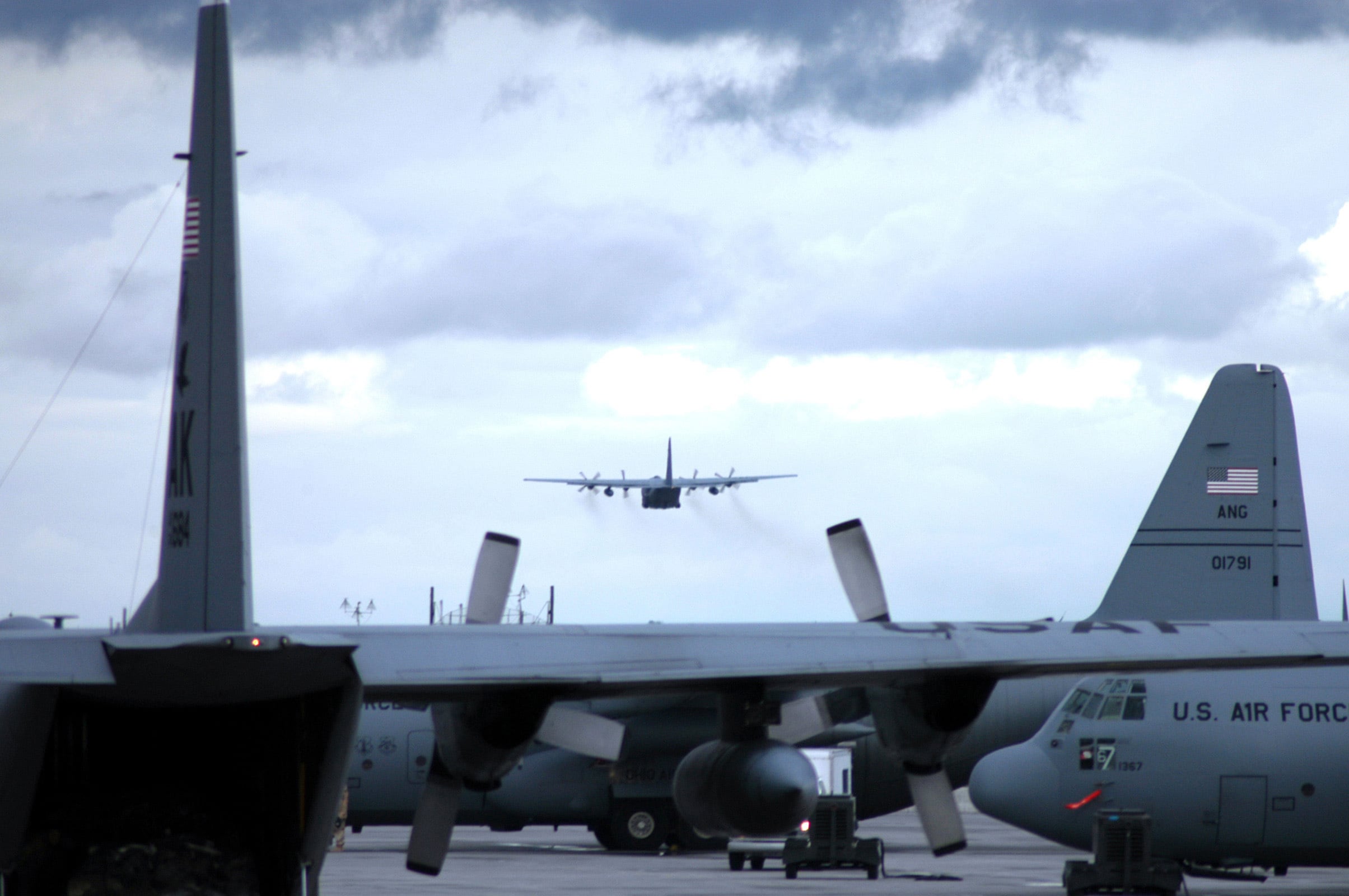Veterans advocates filed a lawsuit against the Defense Department Monday demanding the release of reports regarding toxic materials found at Karshi-Khanabad Air Base in Uzbekistan, believed to have caused a series of rare illnesses in thousands of troops stationed there in the early 2000s.
“In order to be able to help veterans who were injured during their time, we need to know what they were exposed to,” said Alison Weir, executive director of the Connecticut Veterans Legal Center, one of the groups involved in the legal effort. “We sent a request, and it has been 200 days. The government should answer this.”
The lawsuit — filed in federal court — requests the release of all information pertaining to contaminants found at the Karshi-Khanabad Air Base, often called K2. More than 15,000 service members were stationed there between 2001 and 2005. The lack of information on what the Pentagon found there has complicated advocates’ efforts to get K2 illness claims covered by the PACT Act, military toxic exposure legislation passed by Congress last summer.
RELATED

“Troops were living in tents on the ground, where substances leached into the soil, where there were ponds and trenches filled with water that was contaminated,” said Sen. Richard Blumenthal, D-Conn., at a Monday press conference announcing the lawsuit. “Literally, their lives became a cesspool of toxic substances, a cocktail of death. They deserve this information,” he added, vowing to personally take the request to Defense Secretary Lloyd Austin.
Advocates said defense officials conducted environmental testing of the soil there, following reports of unusual illnesses among those troops, to monitor for toxins like jet fuel, asbestos, uranium, and residue from chemical weapons. But those reports have not been publicly released, despite numerous requests from media organizations and outside watchdogs.
Defense Department officials did not respond to requests for comment on Monday’s lawsuit or the delay in response to previous report inquiries.
Matt Erpelding, executive director of the Stronghold Freedom Foundation and a veteran who served at Karshi-Khanabad, said he seeing fellow service members developing health issues within a few weeks of arriving at the base. But veterans who served at the site still don’t qualify for certain federal benefits and health care because their problems aren’t recognized as linked to their military service.
RELATED

“There is a 500% greater chance of K2 veterans developing cancer than other service members,” he said at a Monday press conference announcing the lawsuit.
“Imagine if one of your family members was at K2 and you want to know which toxins were there so they can get the help they need. The time is now to get those answers.”
The lawsuit is likely to face multiple months of legal responses before any potential action, but advocates said they hope the public attention on the issue could resolve the issue sooner.
Leo covers Congress, Veterans Affairs and the White House for Military Times. He has covered Washington, D.C. since 2004, focusing on military personnel and veterans policies. His work has earned numerous honors, including a 2009 Polk award, a 2010 National Headliner Award, the IAVA Leadership in Journalism award and the VFW News Media award.




